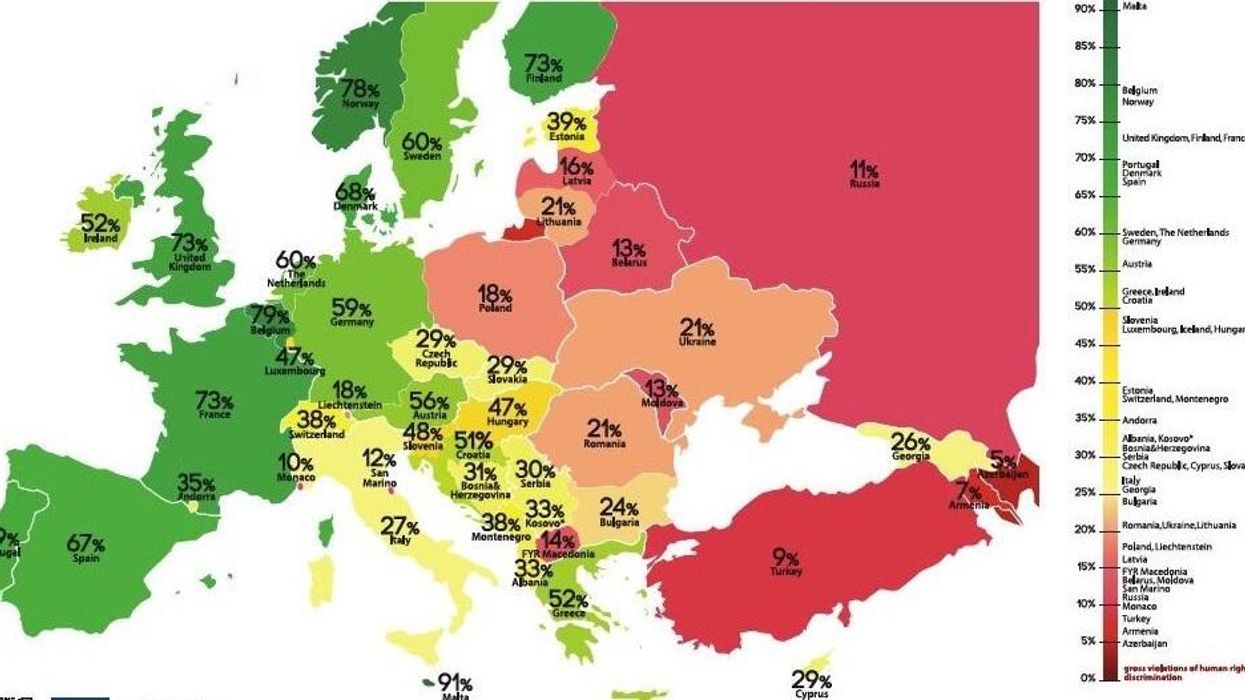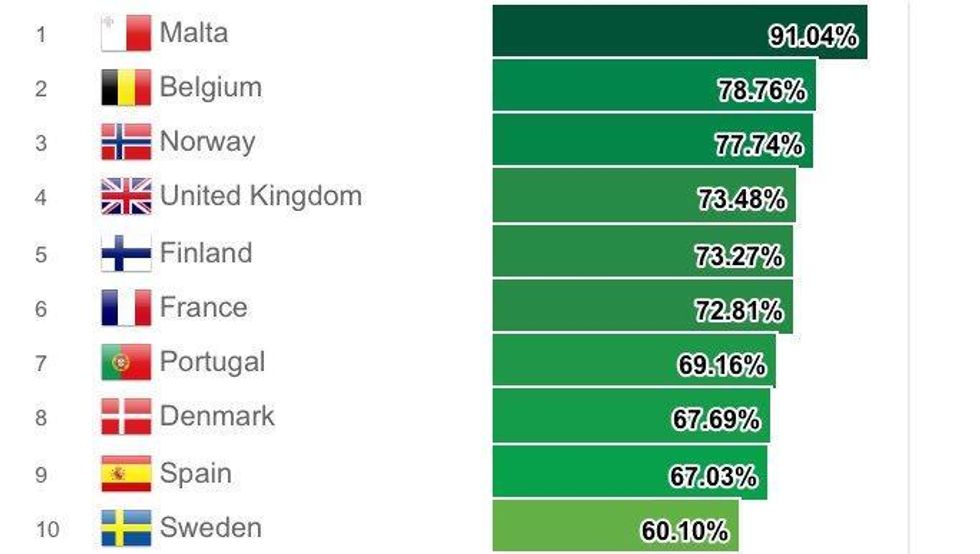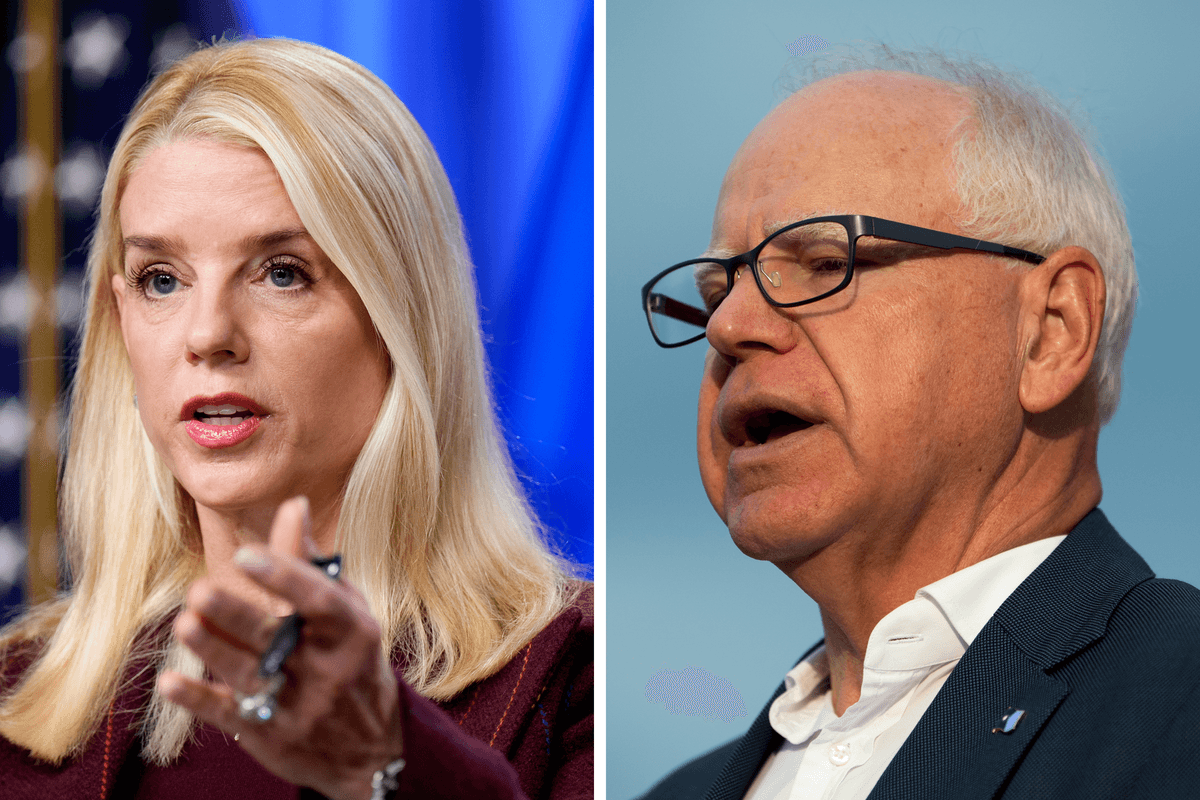News
Louis Staples
May 15, 2018

ILGA EUROPE
An newly released index has revealed a troubling lack of progress in LGBT+ equality in Europe.
The 2018 Rainbow Europe Map and Index, compiled by the International Lesbian and Gay Association, has shown that fewer countries are making improvements in terms of LGBT+ rights - with many stagnating, including countries that are traditionally perceived as equality "frontrunners".
The index ranks 49 countries in Europe based on their LGBT+ equality laws and policies. These include anti-discrimination laws, whether a country recognises same-sex marriage or unions, as well as laws surrounding gender recognition. Laws relating to intersex people, who are born with variations in sex characteristics, are also taken into account. This lack of sustained progress on LGBT+ equality issues should set off alarm bells for policymakers and advocates alike, according to ILGA.
ILGA-Europe executive director Evelyne Paradis, said:
The incredible achievements of the past decade are at stake. Let’s not make the mistake of thinking that we have achieved equality. There are too many signs around us that many of the recent wins are fragile. So let me say it again – we are nowhere near done.
The UK comes fourth on the list, dropping one place from last year. Britain topped the list in 2014, shortly before same-sex marriage was legalised. With trans-inclusive policies that are the envy of progressive LGBT+ advocates across Europe, Malta topped the list for the second year running.
Reacting to the UK's declining status on the index, Paul Dillane, Executive Director of Kaleidoscope Trust, a UK-based NGO working to defend the rights of LGBT+ people worldwide, said:
In four years, the UK has fallen from being the leading country on LGBT+ rights in Europe to fourth place on the ILGA Europe Rainbow Index. Ahead of the International Day against Homophobia, Transphobia and Biphobia, this news should act as a wake up call to political leaders that there is no room for complacency. LGBT+ people in the UK still face significant challenges.
Domestically, we must make it easier for trans people to self-identify, extend marriage equality to all parts of the UK and ensure that LGBT+ asylum seekers are genuinely protected.
The UK's commitment to be a global leader on LGBT+ rights at home and internationally must be matched by effective action if we are to ensure genuine equality is a reality for all LGBT+ people.
For ILGA-Europe, this stagnation is a worrying picture considering the current political climate of rising levels of populism, nationalism and civil society scapegoating, which have negative impacts on vulnerable groups such as LGBT+ people.
Joyce Hamilton, co-chair of ILGA-Europe’s executive board, commented:
Our communities unfortunately know all too well how vulnerable we are to undemocratic tendencies. Law and policies are often the last line of defence for LGBTI people so that is why we insist on making sure our countries’ legislation explicitly protects our human rights.
All governments in Europe have to pick up the pace, stick to their commitments and make legal protection a reality for all LGBTI people, particularly trans and intersex people.
To the politicians in countries with consistently poor Rainbow Europe records and who claim LGBTI equality issues aren’t a priority, ILGA-Europe and our members stand firm:
Avoiding your responsibility to work for LGBTI equality is not an option for any political leader or government official in 2018. Now is the time for them to show leadership by fully backing policies that make equality an everyday reality for the people they serve.
More: This is why LGBT+ Pride is essential, no matter what country you live in
Top 100
The Conversation (0)














